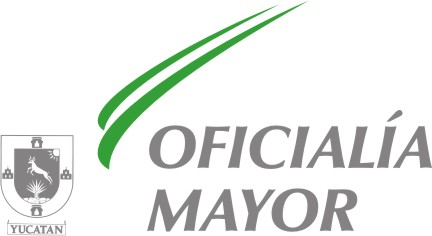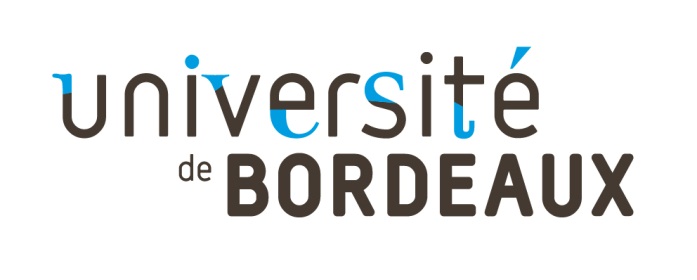MARRAKECH PROCESS ON SUSTAINABLE CONSUMPTION AND PRODUCTION TASK FORCE
1 0 DAGES RUNDREJSE TIL MAROKKOS KONGEBYER MARRAKECHANÁLISIS DE LAS PRINCIPALES DISPOSICIONES DEL TRATADO DE MARRAKECH
L BAZZI WAS BORN IN 1961 IN MARRAKECH MOROCCO
MARRAKECH PROCESS ON SUSTAINABLE CONSUMPTION AND PRODUCTION TASK FORCE
PROTOCOLO DE MARRAKECH ANEXO AL ACUERDO GENERAL SOBRE ARANCELES
Riad les Oliviers Marrakech le Service Vert ! Cher
Direttore: Arch
MARRAKECH PROCESS ON SUSTAINABLE CONSUMPTION AND PRODUCTION
TASK FORCE “EDUCATION FOR SUSTAINABLE CONSUMPTION”
First Meeting of the Task Force
Education and Sustainable Consumption.
Interlinkages and Interdependencies: an Essential Relationship
16-17 April 2007
Palazzo Tursi
Via Garibaldi 9, Genova (Italy)
__________________________________________________
PROVISIONAL AGENDA
– 16 April 2007 -
|
|
9:00 – 9:30 |
Arrival of participants and registration |
|
|
9:30 – 10:30 |
Official Opening of the Meeting – chairperson Mr. Corrado Clini, Director General, Ministry for the Environment, Land and Sea Mr. Giuseppe Pericu, Mayor of Genova Mr Claudio Burlando, President of the Region Liguria H.E. Alfonso Pecoraro Scanio, Minister for the Environment, Land and Sea Ministry of Education Ministry of University and Research Mr Arab Hoballah, Chief, Sustainable Consumption and Production Branch UNEP DTIE |
|
|
10:30 – 11:00 |
Introduction to the Conference: Education for Sustainable Consumption and the Role of the Marrakech Task Force Mr. Paolo Soprano, Director of Division, Italian Ministry for the Environment, Land and Sea - MTF on ESC Work Plan 2007-2009 Prof. Mauro Ceruti, University of Bergamo - Education and Globalisation |
|
|
11:00 – 11:30 |
Keynote speeches: Education and Sustainable Consumption Mr Gianfranco Bologna, Scientific Director of the Italian World Wildlife Foundation – Contribution on actual consumption patterns Mr. Edgar Gonzales Gaudiano, Senior Consultant Universidad Autonoma de Mexico – Contribution on education as a mean of implementation towards SCP |
|
|
11:30 – 11:45 |
Coffee Break |
|
|
11:45 – 12:00 |
Opening of the Working Group session Mr Andrea Innamorati, Ministry for the Environment Land and Sea – Presentation of the working groups and guidelines |
|
|
12:00 – 13:00 |
Working Groups – parallel sessions: The discussion within the WGs will focus on priorities and key challenges identified in the Terms of Reference. The WGs will produce a report defining possible contributions as viable steps forward towards the fulfilment of the TF objectives and in preparation of the 10 Year Framework of Programmes. Formal learning processes towards the promotion of sustainable consumption (Chairperson: Mr Bernard Combes, Information/Documentation Specialist, UNESCO DESD) The focus will be on identifying links between ESC and the UN DESD as a framework of reference to define lines of action, at regional or national level, to overcome main obstacles, to address key challenges, (institutional, cultural, organisational, etc.) and to present successful and replicable experiences. The contribution of social capital to SCP (Chaiperson: Mr Bjarne Pedersen, Head of Policy and Advocacy - Consumers International) The analysis of the role of behavioural norms and rules, values, social context and culture, vision of society, networks of relationships, fashion and media messages should provide useful references to build social capital needed for the achievement of ESC objectives. The WGs itself could consider its contributions as a first nucleus of social capital to widen in the perspective of the TF activities. Educated companies: the role and involvement of private sector in SCP (Chairperson: ..TBC) Sustainable Consumption and Production patterns require a new economic rational appropriately considering different instruments deriving from key concepts as “polluter pays principle” and “getting the prices right”. Considering a twofold approach (supply and demand), how can education and training help to shape a new role for different economic actors in promoting SCP? Educational needs: objectives and contents for the introduction of SCP in curricula (Chairperson: TBC) There is a strong need to harmonise curricula with the new challenges of the complexity. Research on didactical and learning methodologies, to apply in higher education, and, on the other hand, training for headmasters, teachers and their instructors are all essential priorities to be addressed. What integrated approach is needed to support the introduction of SCP into curricula? |
|
|
13:00 – 14:30 |
Lunch |
|
|
14:30 – 16:30 |
Working groups I, II, III, IV – parallel sessions: |
|
|
16:30 – 17:00 |
Coffee break |
|
|
17:00 – 18:00 |
Feedback from the Working Groups I, II, III, IV (Facilitator: Mr Mario Salomone, Director of Istituto Scholé Futuro) A report from each working group will be presented. This report will focus on topics concerning general recommendations, gaps, best practices and the way forward.
|
PROVISIONAL AGENDA – 17 April 2007 *
|
|
9:30 |
Arrival of participants |
|
|
9:30 – 9:45 |
Opening of day two Mr Paolo Soprano, Director of Division Ministry for the Environment, Land and Sea – Summary of day one, presentation of the Working Groups, guidelines and organisation of day two. |
|
|
9:45 – 11:00 |
Working groups – parallel sessions: The discussion within the WGs will focus on priorities and key challenges identified in the Terms of Reference. The WGs will produce a report defining possible contributions as viable steps forward towards the fulfilment of the TF objectives and in preparation of the 10 Year Framework of Programmes. Teaching and learning for SCP: methodologies, didactic tools and teacher education (Chairperson: Ms Victoria Thorensen, Project Manager, Consumer Citizenship Network) There is a strong demand on teachers training as so far as on tools supporting learning processes. Studying existing experiences could provide suggestions to go over and to find best solutions for the next step forward. Indicators and criteria for quality assessment, evaluation and monitoring initiatives in ESC (Chairperson: Ms Michela Mayer, INVALSI - Italian National Institute for Evaluation on the Educational System) Monitoring the introduction of sustainable consumption in curricula is aimed not only at measuring progress, but also at identifying continuous quality procedures. What tools, criteria and indicators have to be used to describe and assess the fulfilment of education for sustainable consumption objectives? Building experiences on local traditional, cultural and natural heritages in a global context (Chairperson: Marcos Antonio Dos Santos Reigota, Coordinator Associaçao Nacional de Pesquisa em Educaçao) One solution does not fit all. Local natural, traditional and cultural heritages provide, within specific contexts, viable solutions to promote sustainable consumption behaviours and to show new ways to produce changes on habits. How can education build on and promote such experiences avoiding imposition of developing models and replication of same mistakes? The Mediterranean region: initiatives and future perspectives (Chairperson: Prof. Michael Schoullos, Coordinator of MEdIES) The Mediterranean region is characterised by an interrelated historical past on which common cultural structures were built, based on dialogue and exchanges, representing an enormous richness to share, to protect and to put on value. What contribution can the TF activities provide to enhance the role within the region and to promote synergies with the ongoing ESD and MSSD related initiatives in the Mediterranean and connections outside the area? Finally, how can Mediterranean heritage become significant on ESC for other basin regions around the world? |
|
|
11:00 – 11:15 |
Coffee Break |
|
|
11:15 – 13:00 |
Working groups V, VI, VII, VIII – parallel sessions: |
|
|
13:00 – 14:30 |
Lunch |
|
|
14:30 – 15:30 |
Feedback from working groups V, VI, VII, VIII (Facilitator: Mr Mario Salomone, Director of Istituto Scholé Futuro) A report from each working group will be presented. This report will focus on topics concerning general recommendations, gaps, best practices and the way forward. |
|
|
15:30 – 16:00 |
Coffee break |
|
|
16:00 – 17:30
|
Wrap-up Session (Chairperson: Mr Paolo Soprano, Director of Division – Ministry for the Environment Land and Sea) Workplan 2007-2009 Sweden: Report of the III Meeting of the Marrakech Task Force on Sustainable Lifestyles Discussion Closing Keynote |
* The Third International Meeting of the Marrakech Task Force on Sustainable Lifestyles led by Sweden will be held on the second day, April 17th, in parallel with the meeting of the TF on ESC.
Tags: consumption and, sustainable consumption, sustainable, force, consumption, marrakech, process, production
- MEMÒRIA DE L’ACTIVITAT PROMOGUDA PEL CLUB ANY DADES DE
- VEILEDER FOR KOMMUNALE TILSYNSMYNDIGHETER SOM UTFØRER TILSYN MED ASYLMOTTAK
- CCSAPAH8 PREPARE FOR POTENTIAL DISASTERS O VERVIEW PART OF
- LA TELEVISIÓN DEL FUTURO LA EXCITACIÓN SE ASOMÓ AL
- PROGRAMA DE FORMACIÓN EN INTEGRACIÓN ANDINA PARA FUNCIONARIOS JÓVENES
- TEACHER BACKGROUND UNIT 2 OCEAN CURRENTS AND THE
- WYKŁADY – SEMESTR I POJĘCIE POSTĘPOWANIA CYWILNEGO ŹRÓDŁA PRAWA
- THE MILWAUKEE INVENTORY FOR THE DIMENSIONS OF ADULT SKIN
- MODERN SLAVERY AND HUMAN TRAFFICKING STATEMENT MODERN SLAVERY ACT
- LA AUTONOMÍA DE LA CIUDAD DE BUENOS AIRES LOGROS
- P OLITICA DE PARTICIPACION DE PADRES DE CORA KELLY
- EDUCATION FOR SUSTAINABILITY MATRIX LEVEL 2 LEVEL 3
- SYLABUS NA ROK AKADEMICKI 20202021 CYKL KSZTAŁCENIA 2019202020232024 OPIS
- COMUNICACIÓN INCIDENCIAS 10002 PÁGINA 1 DE 1 NOMBRE EMPRESA
- 112520 DATE ALLIED HEALTH DIVISION X REQUIRED COURSE NEW
- KVALITETSHANDBOK HJÄLPMEDEL FÖR FUNKTIONSHINDRADE ARBETSPLATS GILTIGT FR O M
- TALLER REGIONAL SOBRE REGISTRO GLOBAL DE EMBARCACIONES PUNTARENAS COSTA
- OBRAZEC 1 PREDLOG KANDIDATA ZA PREDLOG NADOMESTNEGA ČLANA SVETA
- ROTARY ECLUB PUERTO RICO Y LAS AMÉRICAS
- DA LUNEDI’ A DOMENICA DAL 03072013 AL 01092013 NAVETTA
- MICROSOFT WORD 2003 MICROSOFT WORD 2003
- SENTENCIA DEL TRIBUNAL DE JUSTICIA (GRAN SALA) DE 7
- EL EXPERTO GARCÍAMONTALVO ALERTA DE ´SUBPRIME´ ESPAÑOLAS A ´PUNTA
- CURSO FORTALECIMIENTO DE CAPACIDADESEN EFECTIVIDAD DE LA AYUDA Y
- REGULAMIN REALIZACJI PROJEKTÓW W WARSZAWSKIM UNIWERSYTECIE MEDYCZNYM (ZARZĄDZENIE REKTORA
- LESIONES ORALES PREMALIGNAS Y MALIGNAS ADMITIDOS APELLIDOS NOMBRE ERDOZAIN
- TRANSCRIPCIÓN 9 – NUMÍSTICA BIEN AQUÍ ESTAMOS CON
- ¿CANSADO AGOTADO Y SIN ILUSIONES? MARTHA CECILIA RICO SÁENZ
- FITXA INSCRIPCIÓ FICHA INSCRIPCIÓN FORMULAIRE D’INSCRIPTION
- FARMACÉUTICOS ESTÁN EN PRIMERA LÍNEA EN LA PREVENCIÓN Y
 ANEXO 3 AUTOLIQUIDACIONES VÍA TELEDESPACHO TELEDESPACHO DE
ANEXO 3 AUTOLIQUIDACIONES VÍA TELEDESPACHO TELEDESPACHO DE OFERTAS DE EMPLEO – FUENTE SEPE SEMANA DEL 31
OFERTAS DE EMPLEO – FUENTE SEPE SEMANA DEL 31TITLE NYHAMNA EXPANSION PROJECT – UNLOCKING MORE ENERGY RESOURCES
 FROZEN SHOULDER (ADHESIVE CAPSULITIS) ‘FROZEN SHOULDER’ IS THE COMMONLY
FROZEN SHOULDER (ADHESIVE CAPSULITIS) ‘FROZEN SHOULDER’ IS THE COMMONLYRECOMMENDATIONS FROM CIVIL SOCIETY ORGANIZATIONS FOR THE SPECIAL SUMMIT
UNIVERSITY OF ALBERTA TELEPHONE INSTRUCTIONS FOR ANALOG UNITY SETS
Η ΕΘΝΙΚΉ ΒΙΒΛΙΟΘΉΚΗ ΤΗΣ ΕΛΛΆΔΟΣ (HTTPWWWNLGGR ) ΠΑΝΕΠΙΣΤΗΜΊΟΥ 32
RN ON CALL EQUIPMENT LIST 1 BEEPER AND OR
 ADOBE CAPTIVATE FRIDAY MARCH 11 2022 SLIDE 3
ADOBE CAPTIVATE FRIDAY MARCH 11 2022 SLIDE 3  URTXINTXA ESCUELA DE FORMACION EN EL TIEMPO LIBRE C
URTXINTXA ESCUELA DE FORMACION EN EL TIEMPO LIBRE CNEMAČKE REČI USRPSKOM JEZIKU JOŠ PRE POČETKA NASELJAVANJA PANONSKE
 PERSON WHO COMPLETED CHECKLIST PROCEDURES TO DEVELOP OTHER WHS
PERSON WHO COMPLETED CHECKLIST PROCEDURES TO DEVELOP OTHER WHSLA GACETA 233 – MARTES 5 DE DICIEMBRE DEL
12 VI SEMEAD ENSAIO MARKETING MARKETING CULTURAL CRITÉRIOS DE
 NO A LA PRÓRROGA DE LA CONCESIÓN A EXMIBAL
NO A LA PRÓRROGA DE LA CONCESIÓN A EXMIBALDAGLIG KLARGØRING 7317 PVP DAGLIG KLARGØRING AF STUE 10
 0 EMERGENCIES UNIT FOR ETHIOPIA (UNEUE) DEVELOPMENT PROGRAMME REPORT
0 EMERGENCIES UNIT FOR ETHIOPIA (UNEUE) DEVELOPMENT PROGRAMME REPORT DIRECCIÓN DE CONTROL PATRIMONIAL INMOBILIARIO Y ALMACENES PODER EJECUTIVO
DIRECCIÓN DE CONTROL PATRIMONIAL INMOBILIARIO Y ALMACENES PODER EJECUTIVOGRUPA DIALOGU SPOŁECZNEGO DS ZWIERZĄT W MIEŚCIE NOTATKA
 IUT DE BORDEAUX RECRUTEMENT ATER (ATTACHÉS TEMPORAIRES D’ENSEIGNEMENT ET
IUT DE BORDEAUX RECRUTEMENT ATER (ATTACHÉS TEMPORAIRES D’ENSEIGNEMENT ET